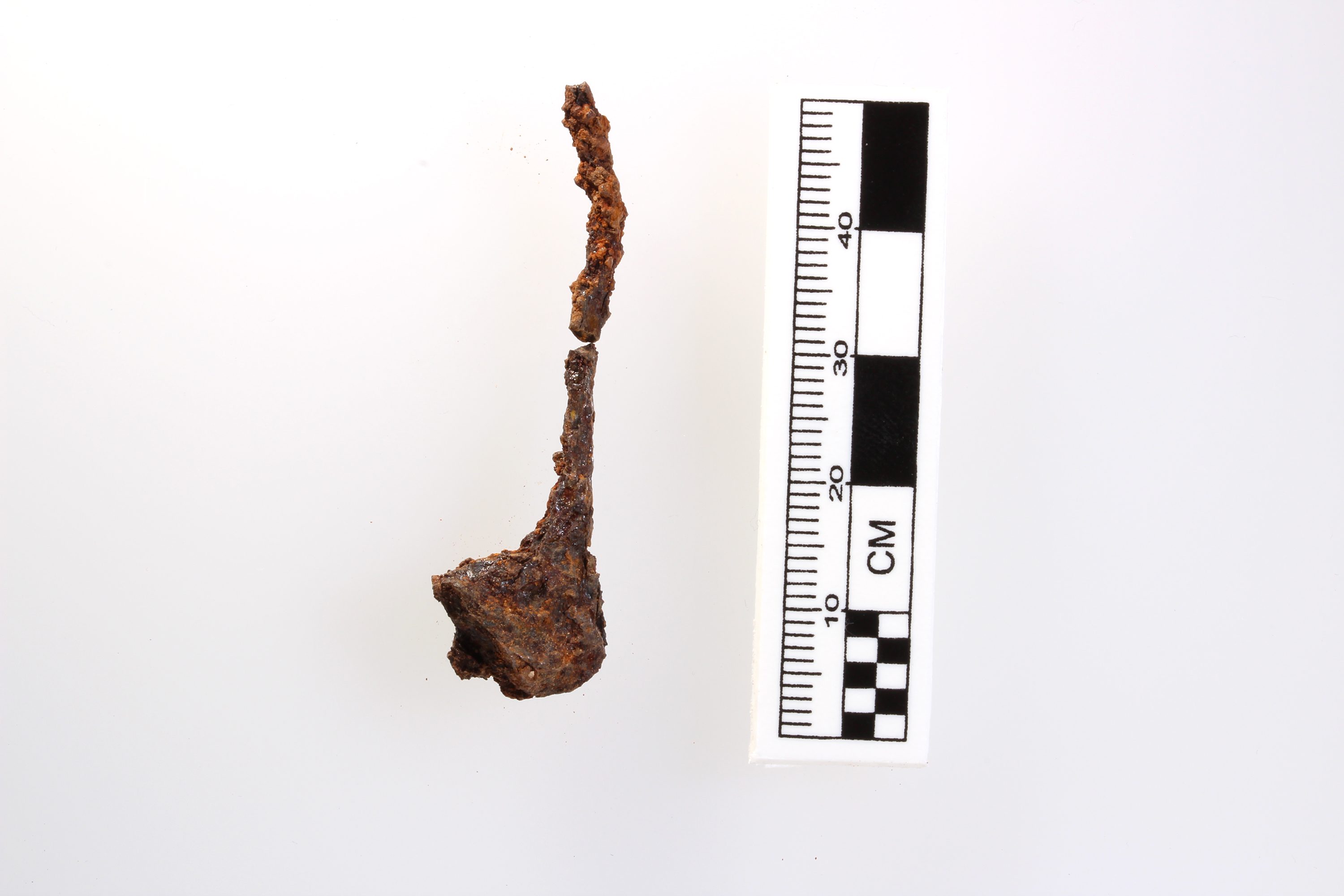A Wichita State University anthropology student working on an archaeological site near Arkansas City, Kansas, has discovered an artifact dating back to the 1600s.
The find occurred at the site of the long-lost city of Etzanoa, discovered by WSU archaeology and anthropology professor Donald Blakeslee in 2015. Etzanoa is the known location of a 1601 battle between Spaniards and Native Americans.
WSU senior Mitchell Young was working in an ancient storage pit at the site Monday, June 5, when 87 centimeters below the ground he felt his tool hit a metal object.
After some further digging, Young uncovered a muddy, rust-covered nail that had clearly been there for some time.
“I didn’t want to get my hopes up, but once I showed it to my professor, I got really excited,” he says.
It turns out that the nail is of Spanish origin and was designed to stick out from a horseshoe (different from modern horseshoe nails).
The nail isn’t bent, evidence that it hadn’t been used in a horseshoe, Blakeslee says. Instead, he says, it was probably traded by one of Juan de Onate’s men to a native. Juan de Onate was a conquistador and founding governor of the colony of New Mexico.
“The natives of North America had access only to iron from meteorites, which they regarded as property of the sky gods,” Blakeslee says. “Hence, even a simple nail would have been valued.”
Young, an Andover High School graduate, is still working on the site alongside Blakeslee and plans to graduate from Wichita State in December.
The mission of Wichita State University is to be an essential educational, cultural and economic driver for Kansas and the greater public good. WSU enrolls about 14,500 students and offers more than 50 undergraduate degree programs in more than 150 areas of study in six undergraduate colleges. The Graduate School offers an extensive program including more than 40 master's degrees that offer study in more than 100 areas; a specialist in education degree; and doctoral degrees in applied mathematics; audiology; chemistry; communication sciences and disorders; human factors and community/clinical psychology; educational leadership; nursing practice; physical therapy; and aerospace, electrical, industrial and mechanical engineering. WSU's Innovation Campus is an interconnected community of partnership buildings, laboratories and mixed-use areas where students, faculty, staff, entrepreneurs and businesses have access to the university's vast resources and technology.


 Wichita State University
Wichita State University